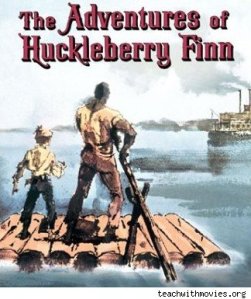 Freedom to Read Week takes place in Canada during the last week of February. This yearly observance is meant to highlight the problem of censorship in Canada and to promote the belief that the freedom to read whatever you want is a fundamental right in Canadian society.
Freedom to Read Week takes place in Canada during the last week of February. This yearly observance is meant to highlight the problem of censorship in Canada and to promote the belief that the freedom to read whatever you want is a fundamental right in Canadian society.
While many people believe that censorship is a thing of the past, books are still being banned yearly. The latest example of book banning in Canada was To Kill a Mockingbird in October of 2009. Anyone who has read this classic novel knows that the language used in the book must be viewed within the context of the novel.
Mark Twain’s classic of American literature, The Adventures of Huckleberry Finn is one of the most frequently banned books in the school curricula because of its repeated use of the N word.
According to Publishers Weekly, NewSouth Books plans to redress it, and release a version that cuts the “n” word and replaces it with “slave.” The slur “injun,” referring to Native Americans, will also be replaced.
In the novel, Huck describes how “the Widow Douglas …took me for her son, and allowed she would sivilize me.” Widow Douglas was never able to, but 126 years later, it seems that NewSouth Books will.
Does substituting ‘slave’ for the N word sivilize it and scrub it clean of the stains of slavery? Does it defile the novel’s context, denying readers the opportunity to discuss the implications of using denigrating language in reference to other groups and people? Isn’t the contested language an opportunity to explore the painful complexities of race relations? Don’t the new clothes cover the painful complexities of race relations and undermine them?
“To substitute a euphemism . . . for nigger robs students . . . of a valuable learning experience,” says Peaches Henry, an English professor from Baylor University in Waco, Texas. An African-American academic, Henry thinks that dropping the word is a mistake, as it “erases the historical accuracy of the novel” and “the use of nigger . . . opens up an avenue for teachers and students to deal with the complex issue of race and racism as it has impacted the United States historically and contemporaneously.”
Stephen Railton, an English professor at the University of Virginia suggests that “(the word) is crucial to the novel’s powerful exploration of the possibility of freedom.” He believes Twain wrote the book because he wanted to “explore racism as a dramatic example of cultural conditioning,” and because he thought it would be popular among his racist American readers.
In the novel Huck recounts how the Widow Douglas “put me in them new clothes again, and I couldn’t do nothing but sweat and sweat, and feel all cramped up.” Huck didn’t like his new clothes then. Do you think he’ll like them now?
Check out this list of famous examples of banned books.